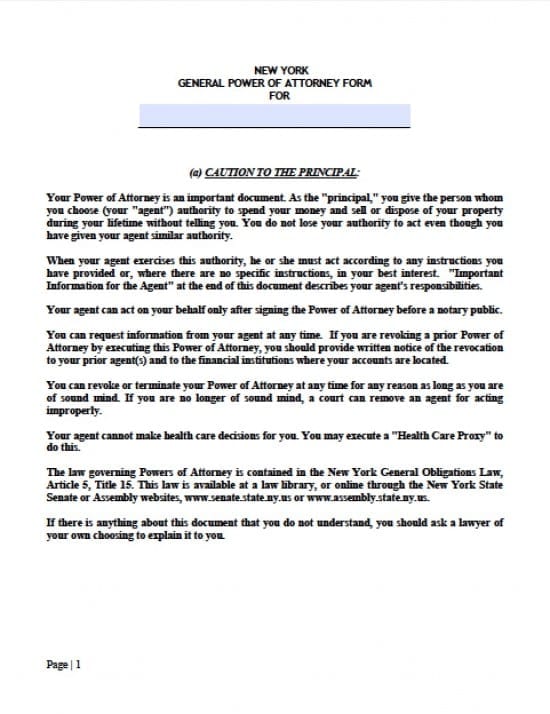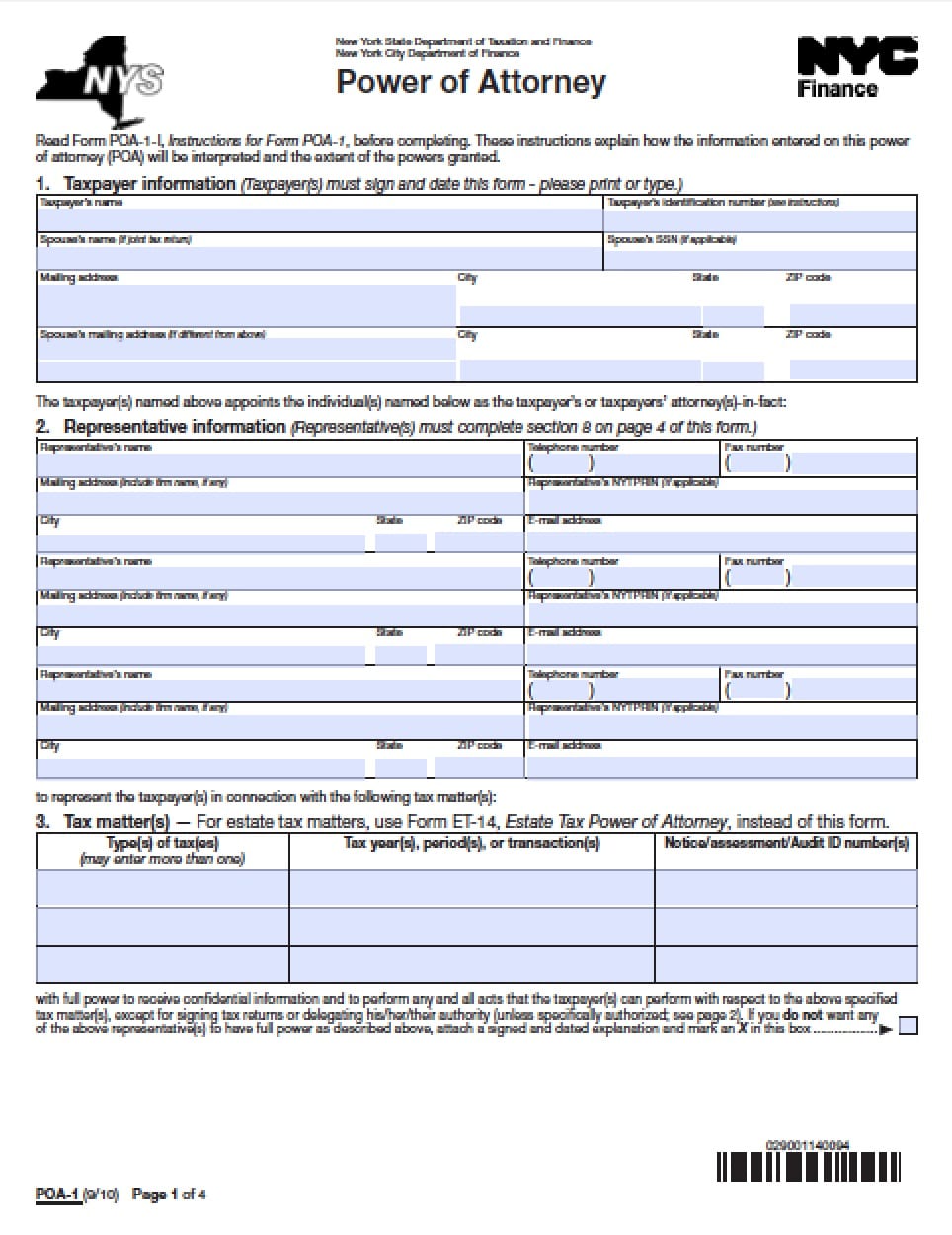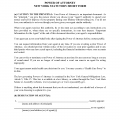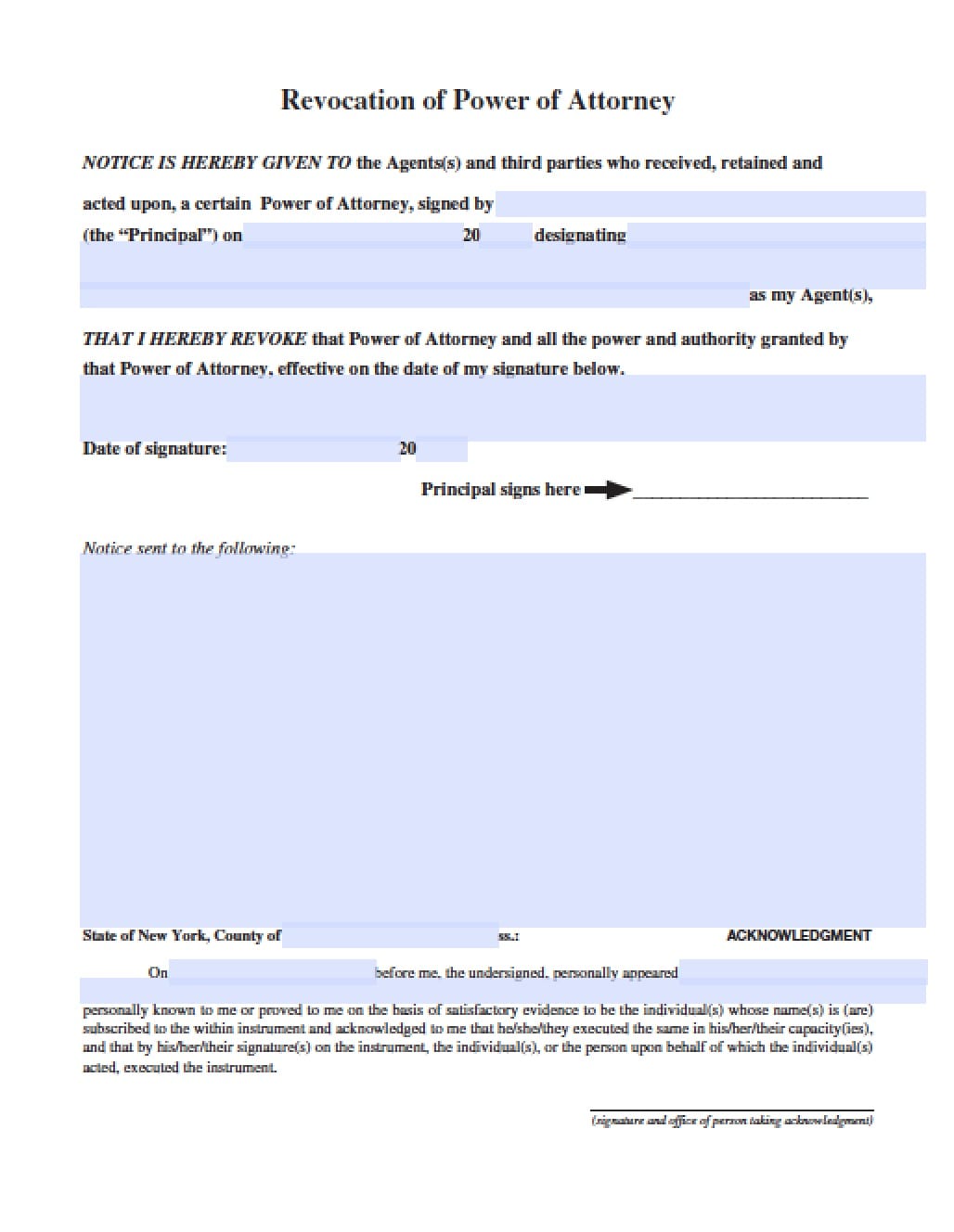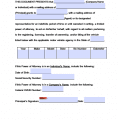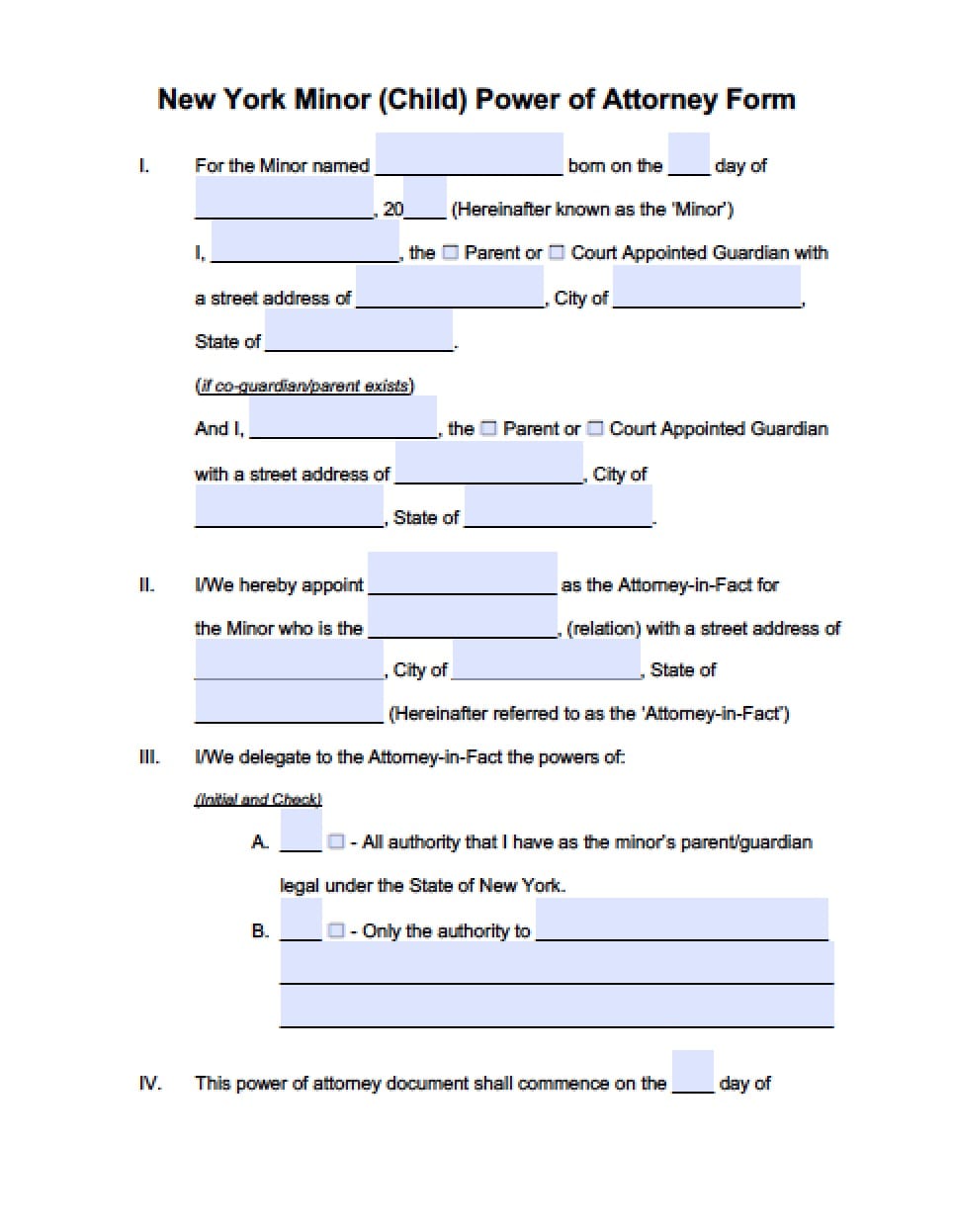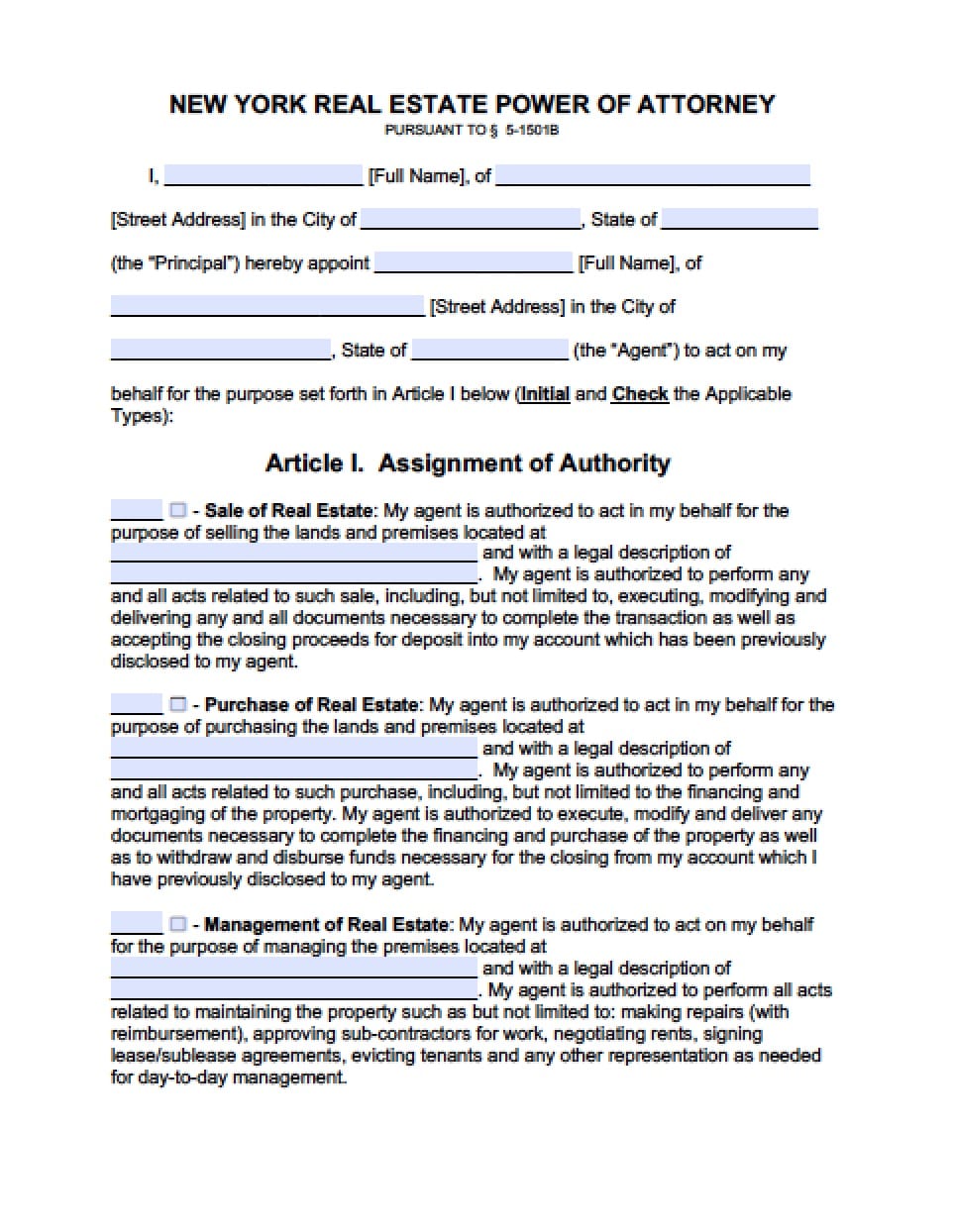 | New York General Financial Power of Attorney Form |
The New York general financial power of attorney form is a document whereas the Principal would transfer authority to an Agent who would serve on their behalf to care for their financial accounts and property while they are still living. It’s important for the Principal to know that this document will not remove the Principal’s right to act on their own behalf, even though they have an Agent to assist them.
It’s the Agent’s responsibility to act on behalf of the Principal whether stated or not in writing. This document does provide instructions to the Agent that they shall be presented with and they must, by law, follow these instructions. At no time will the Agent have any right to make health care decisions on behalf of the Principal. It’s highly recommended that the Principal take the time to review the entire document. If any of it is unclear, they should consider a consultation with a knowledgeable attorney to assist them in proper understanding of their rights.
This document must be signed before a notary public and two witnesses. This document may be revoked at the discretion of the Principal and may be done so, in writing, and by delivery to the Agent(s).
How to Write
Step 1 – Caution to the Principal –
- The Principal must read the entire beginning section prior to completion of this document
Step 2 –The Parties – Submit the following:
- The name of the Principal
- The Principal’s Address
- AND
- Enter the Name of the selected Agent
- Agent’s Street Address
- AND
In the event the initial agent is unable or unwilling to properly act on behalf of the Principal, the Principal may decide to name a second Agent to act together or separately (according to the selection of the Principal –
- Enter the Name of Second Agent (optional)
- Enter the Address of the second Agent
Should the Principal decide upon electing a second Agent, they must work together on behalf of the Principal, unless the Principal would like the Agent’s to work consecutively. Should this be the case, the Principal must initial the following statement, contained within the form:
- “My agents may act SEPARATELY”
Step 2 – Designation of Successor Agent(s) –
Successor Agent(s) are authorized in the event that the initial Agent becomes unable to act on behalf of the Principal. Should the Principal choose to name Successor Agents, submit the following:
- The name of each respective Successor Agent
- Provide the addresses of each Successor Agent
The Principal shall indicate, by checking the following statement, if their preference would be that the Successor Agent(s) work together. Should the Principal wish for the Successor Agent(s) to act consecutively, initial the line, if not, place an “X” in the field – Directly below the statement, the Principal may enter the information with regard to how they would wish the succession to proceed should the Agent(s) services be needed:
- “My successor agents may act SEPARATELY”
- Principal must read the remaining portion of this section
Step 3 – Grant of Authority – The Principal must enter the letter for each power in any field containing the powers they wish to grant to the Agent(s). If the Principal chooses not to grant a specific power, then they must “X” out the field – Select any or all of the following:
- (A) real estate transactions
- (B) chattel and goods transactions
- (C) bond, share, and commodity transactions
- (D) banking transactions
- (E) business operating transactions
- (F) insurance transactions; New York State Bar Association New York Statutory Short Form Power of Attorney, 8/18/10, Eff. 9/12/10 2010 N.Y. Laws ch. 340 Page 3 of 9
- (G) estate transactions
- (H) claims and litigation
- (I) personal and family maintenance: If you grant your agent this authority, it will allow the agent to make gifts that you customarily have made to individuals, including the agent, and charitable organizations. The total amount of all such gifts in any one calendar year cannot exceed five hundred dollars
- (J) benefits from governmental programs or civil or military service
- K) health care billing and payment matters; records, reports, and statements
- (L) retirement benefit transactions
- (M) tax matters
- (N) all other matters
- (O) full and unqualified authority to my agent(s) to delegate any or all of the foregoing powers to any person or persons whom my agent(s) select
- (P) Each of the matters are to be identified by the following letters: A through P
- You need not initial the other lines if you initial line (P)
- The Principal must review the following two titles:
- Modifications (optional)
- Major Gifts and Other Transfers – Should the Principal choose to grant authority to make gifts in accordance with the terms – initial the field before the statement, if not, place an “X” in the line preceding each
Step 4 – Designation of Monitor(s) – Should the Principal choose to elect a monitor over the Agent(s):
- First initial the field before the statement (leaving blank if the Principal chooses not to elect a monitor)
- Enter the name of the Monitor
- Enter the Monitor’s Address
Step 5 – Compensation of Agent(s) – Should the Principal choose to compensate their Agent(s) with assets, money or in any other way of compensation, initial the following statement in the field provided. If not, enter an”X” in the field(s):
- Agent(s) shall be entitled to reasonable compensation for services rendered
The Principal and the Agent(s) must read and agree to the following sections –
- Acceptance by Third Parties
- Termination
- Date the signature in dd/mm/yyyy format
- Enter the Principal’s Signature
Once read and agreed to by the Agents, the notary shall complete this section, acknowledging this portion of the document.
Step 6 – Important Information for the Agent –
- The assigned original Agent must read all of the information in this section prior to providing their signature. This is a legal document and does hold legal responsibilities that the Agent must agree to.
- When the Agent has read and agreed to the entire section then the Agent must enter their signature
Once the Agent has read and agreed to the information provided, the notary shall witness the signature of the Agent and complete this document, acknowledging the validity of the document and affixing their official seal.
